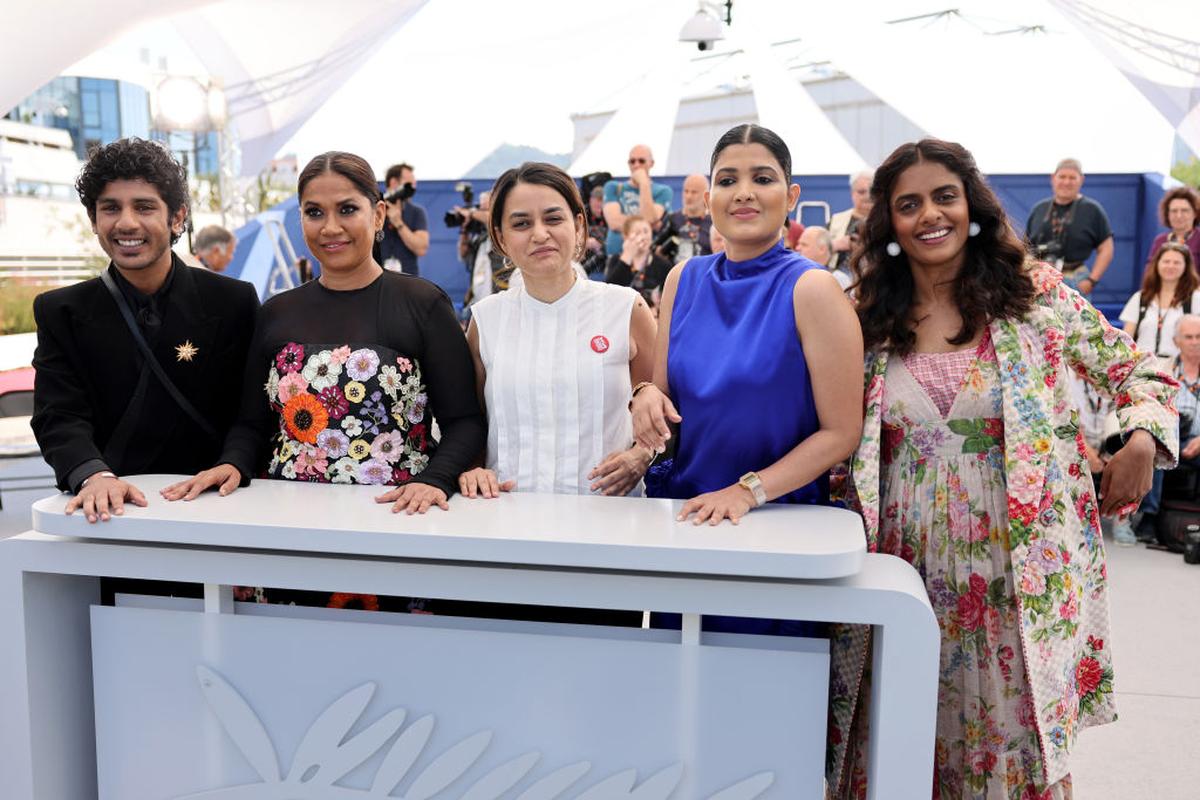
(Clockwise from far left) Nina Davuluri, Sameer Banerjee, Gajendra Chauhan, Anasuya Sengupta, Payal Kapadia, and Anurag Kashyap.
Yes, we Cannes. That seemed to be the prevailing sentiment after India’s historic showing at the Cannes Film Festival this year.
Every year, India’s Cannes coverage typically follows a certain formula. First there’s a slew of photographs of Indian celebrities and quasi-celebs posing on the red carpet and a gush of reports about their outfits.
Then there’s a stream of finger-wagging articles bemoaning the fact that none of the red-carpetbaggers was there to promote actual films, that the world’s biggest film industry had again produced nothing that could be deemed Cannes-worthy.
Finally, someone shares an old photograph of Shabana Azmi, Smita Patil and Shyam Benegal at Cannes when Benegal’s Nishant (1975) was nominated for the Palme d’Or award and everyone wistfully sighs about the long-lost good old art-film days.
This year, India broke the jinx. The ‘nishant’ happened when Payal Kapadia took home the Grand Prix for her film All We Imagine As Light, and Anasuya Sengupta won the Un Certain Regard Best Actress prize for The Shameless. It led to widespread jubilation and social media celebration from Prime Minister Modi to Bollywood stars to former FTII chair Gajendra Chauhan.

But as many pointed out, it was a little ironic for Chauhan to “feel proud” that he was “chairman at the time when (Kapadia) was doing the course there” given that Kapadia is still fighting legal cases stemming from her involvement in months of protest against his appointment.

Filmmaker Payal Kapadia (centre) with the cast of her Grand Prix-winning film ‘All We Imagine As Light’ at the Cannes Film Festival, May 2024. | Photo Credit: Getty Images
A taste of success
Chauhan, however, was an easy target for hypocrisy, a way to deflect attention from the rest of us. As filmmaker Anurag Kashyap said in an interview, India did not support these films. These “Indian” films were really French productions or self-funded or financed by the U.K. Film Lottery Fund. Even the Indo-French production is yet to receive its promised government rebate. Kashyap said Konstantin Bojanov, director of The Shameless, spent 10 years struggling with the film and chose Sengupta, an art director, as his lead after getting no interest from better-known actors. And the truth is, most Indians didn’t even know these films existed before they won their awards. We were too busy Googling influencer Nancy Tyagi and her DIY red-carpet outfits.

Actors Omara Shetty and Anasuya Sengupta with director Konstantin Bojanov (centre) during the photocall of their film ‘The Shameless’ at Cannes 2024. | Photo Credit: Getty Images
But while failure is an orphan, success has many mothers. Many Indians, especially movers and shakers, are patting themselves on the back about the Cannes success. It is proof positive of India’s rising global star. But Cannes is just the latest example of an old phenomenon. Indians will routinely puff up with pride about desi entrepreneurs in Silicon Valley, ignoring the hard truth that many of those super-achievers went to America because they felt stymied and stifled in India.
When 17-year-old Sameer Banerjee won the Wimbledon Boys’ championship in 2021, a television channel in Assam called it a “proud moment for the Northeast” because his grandfather had been a general manager with an oil company in Assam in the 80s. That Sameer himself was actually American, the son of Indian immigrants, was an inconvenient fact that was brushed aside in the euphoria.
When Nina Davuluri faced some slurs after she won the Miss America title in 2014, a newspaper in India said, “Racist remarks sour Indian girl’s Miss America moment.” Davuluri had already categorically said she viewed herself as “first and foremost American” from Syracuse, New York and Oklahoma. No matter. Indians were ready to claim her success as their own achievement.
We did not root for them
But those were just stray strands of DNA pride and mostly limited to the media asking all-important questions like: ‘Do you like Indian food?’, ‘Do you watch Bollywood films?’, ‘Who is your favourite film star?’. It was a way to claim our little corner in their global success story.
The Cannes jubilation is more misplaced. As Kashyap and others have pointed out, these achievements belong to these indie filmmakers and actors alone. They struggled against all odds to make the films. They didn’t have the support of all those falling over themselves now to congratulate them. None of these people were rooting for them.
Will their success make it easier for the next Payal Kapadia to make an offbeat film? Will another Anasuya Sengupta attract the attention of filmmakers despite not having the traditional film heroine looks? Indie films will always be niche but will that niche get ‘un certain regard’ in India without needing the chhappa of a foreign award for Indians to take notice?
And when that film releases (and gets some godforsaken mid-afternoon or late-night slot), will we go to the multiplex to see it? That’s if it gets a slot at all. The Oscar-nominated documentary All That Breathes, which won an award at Cannes in 2022, never even got a theatrical release.
Perhaps, the Cannes moment is not just an occasion for celebration. But also a moment for introspection.
The writer is the author of ‘Don’t Let Him Know’ and likes to let everyone know about his opinions whether asked or not.

